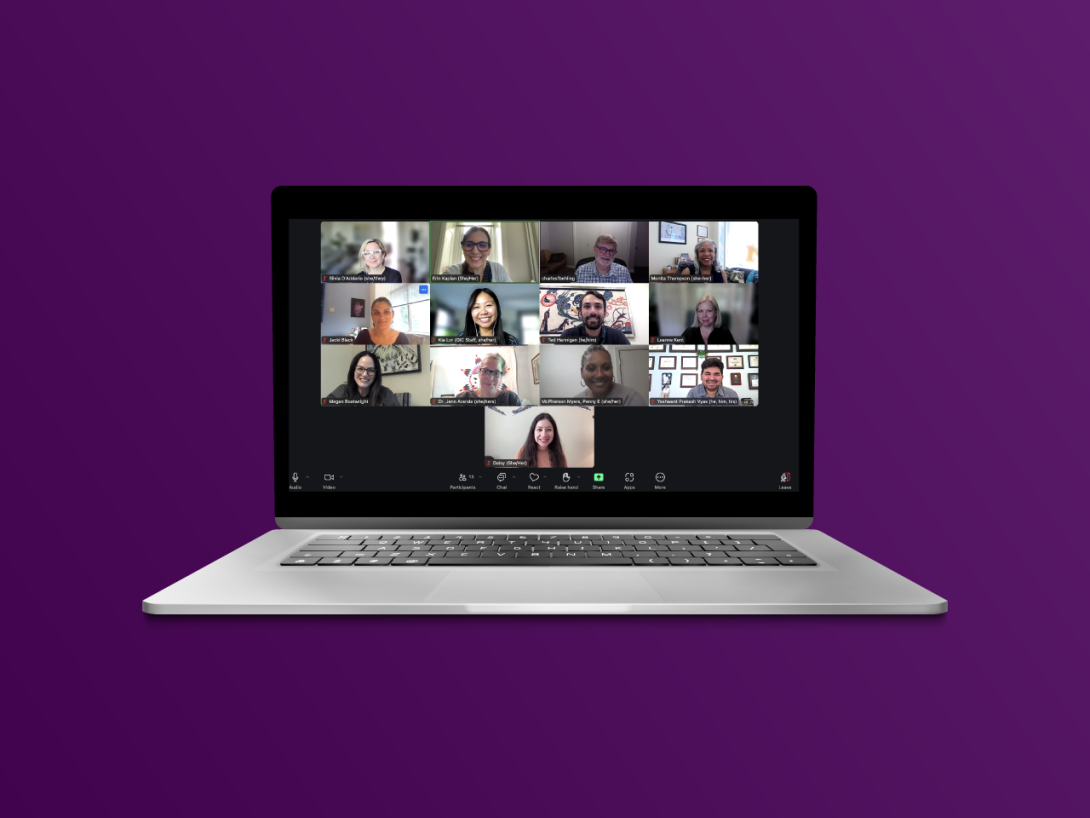July 29, 2024 | By Nick Pfost
Higher education is facing a challenging time and seeking solutions. For years, colleges and universities across the country have navigated increasingly tumultuous landscapes from campus to Congress. Recently, many have grappled—some mightily—with insulating their institutions from political risk, reducing polarization, and dealing with unrest, while striving to deliver on their central missions and values. They’re looking with renewed verve at how they hold in balance their interests and obligations around speech, safety, accountability, and leadership—to mixed reviews that underscore existing divisions and sometimes exacerbate tensions within a campus community.
Cutting through the fog, one powerful, proactive tool shines particularly bright as a beacon of hope: intergroup dialogue.
Intergroup dialogue is a practical, research-backed, and peer-led course that focuses on social group identity, understanding power and oppression, and communicating across differences. It prepares students to live, work, and make ethical choices in an increasingly diverse and interconnected world.
—
This summer, 66 leaders and faculty from across the country came together virtually to learn how to develop intergroup dialogue programs at their institutions. Staff and faculty from The Program on Intergroup Relations led sessions throughout the four-day program. The goals were to explore the Michigan Model of Intergroup Dialogue, share strategies for using dialogic pedagogy in curricular and co-curricular programs, and equip participants with a foundation of institutional strategies for developing and supporting dialogue programs that suit their institutional context.
“We host the National Intergroup Dialogue Institute annually for higher education professionals and faculty to learn more about intergroup dialogue pedagogy, engage in experiential learning and explore programmatic possibilities for dialogue on their own campuses,” said Patrick Kazyak-Albaladejo Muñiz, IGR’s associate director for strategic partnerships and dissemination.
Communicating across differences
Developed at the University of Michigan, the Michigan model is a structured, four-stage process, focusing on exploring social identity categories, gathering members from different social groups to regularly meet and address discrimination and social inequity. It involves listening to different viewpoints, gaining insights, and seeing through others' eyes, while challenging biases and considering multiple perspectives. Participants learn to listen generously, ask questions, share their views, and commit to understanding others, seeking shared understanding rather than casual exchange or debate.
“Research has shown that the Michigan model works,” said Deborah Slosberg, assistant director at IGR. “A foundational, longitudinal study done across nine different universities and 26 dialogues—presented in Dialogue Across Difference: Practice, Theory, and Research on Intergroup Dialogue—revealed that participants increase empathy, awareness of systems of oppression, and political engagement.”
The Michigan model is nationally recognized for its positive impact on the learning outcomes of students across all groups. The first program of its kind, IGR seeks to advance the field, sharing its knowledge and expertise with other universities through this institute, as well as through consultations.
“Lit a fire under me”
Attendees at this year’s institute reported gaining valuable insights and renewed energy for building intergroup dialogue on their campuses. They highlighted personal and network growth, as well as critical vision and preparation, as key takeaways.
“[It] lit a fire under me seeing how many people took time to come here and learn this,” said one participant.
Another said, “I now have the language that I previously lacked in how to position and pitch this program to senior leadership, and I see what my role in this work could be.”
“I feel more committed to this work than ever, and the institute re-energized me and my colleagues in all the ways we needed,” added a third.
An indispensable tool in the toolkit
Amid a cacophony of soundbites and political chatter, intergroup dialogue programs help students and staff cut through the noise, connect with one another, and contribute to a better, healthier campus. These programs are an invaluable educational tool in an institution’s toolkit, and the National Intergroup Dialogue Institute emerged not merely as an academic exercise but as a vital forum for fostering understanding and engagement nationwide.
“As we progress into yet another contentious election year compounded by seemingly increasing political polarization, an unrelenting global pandemic and multiple ongoing genocides, this year’s IGD Institute participants carried both a deep sense of dedication to and urgency for advancing social justice and equity,” Kazyak-Albaladejo Muñiz added.
This year’s was the fifth institute held virtually since the onset of the COVID-19 pandemic. The Program on Intergroup Relations will welcome a new cohort to Ann Arbor for its 19th annual gathering, June 9-12, 2025, marking the return of a rich in-person experience.
Read more

